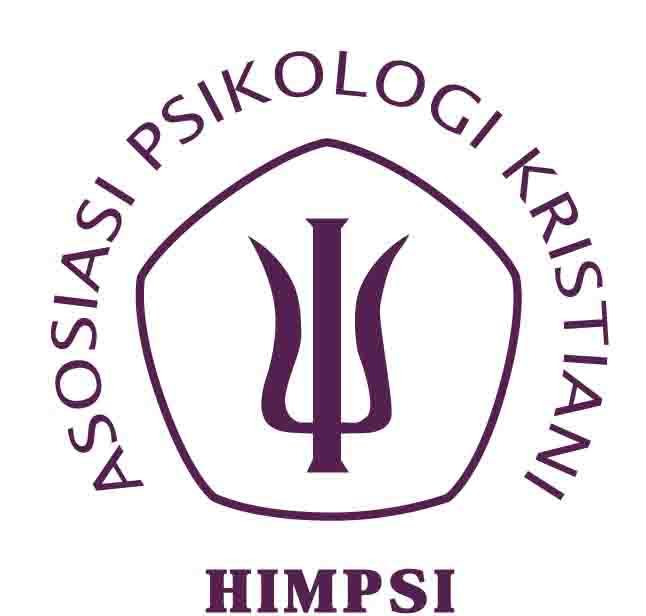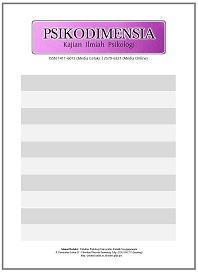The Role Of Locus Of Control Toward Arousal Procrastination Among Students
Abstract
Keywords
Full Text:
PDFReferences
Bono, T. A. (2001). Relationship of core self-evaluations traits—self-esteem, generalizedself-efficacy, locus of control, and emotional stability with job satisfaction and job performance: A meta-analysis. Journal of Applied Psychology, 86(1). 80-92.
Clarry H. Lay, H. C. (1995). Trait procrastination and the big five factors of personality. Personality And Individual Differences 18(4). 481-490.
Deniz, M. E., Tras, Z., & Avdogan, D. (2009). An investigation of academic procrastination, locus of control and emotional intelligence. Educational Sciences: Th eory & Practice, 149(2). 623-632.
Boysan, M., Kiral, E. (2017). Associations between procrastination, personality, perfectionism, self-esteem and locus of control. British Journal of Guidance & Counselling. 45(3). 284-296.
Ernima, R.Y. (2016). Locus of control dan prokrastinasi pada mahasiswa pendidikan ekonomi angkatan 2013 Fakultas Ekonomi Universitas Negeri Jakarta. Jurnal Pendidikan Ekonomi dan Bisnis 4(2), 87-106.
Ferrari, J. R. (2005). Prevalence of procrastination in the united states, united kingdom, and australia: arousal and avoidance delays among adult. North American Journal of Psychology 7(1), 1-6.
Hartosujono. (2012). Perilaku prokrastinasi mahasiswa ditinjau dari locus of control. Jurnal SPIRITS 3(1), 28-42.
Kourmousi, N., Xythali, V., & Vasilious, K. (2015). Reliability and validity of the multidimensional locus of control IPC scale in a sample of 3668 greek educators. social sciences , 4, 1067-1078.
Lay, C. H. (1986). At least, my research article on procrastination. Journal Of Research In Personality, 20,474-495.
Meier, A., Reinecke, L., & Meltzer, C. E. (2017). “Facebocrastination”? predictors of using facebook for procrastination and its effects on students’ well-being. Computers in Human Behavior, 64, 65-76.
Nugrasanti, R. (2006). Locus of conrol dan prokrastinasi akademik mahasiswa. Jurnal Provitae, 2(1), 25-3.
Philips, M. (2012). Does locus of control task interest have an effect on procrastination? Journal of Learning and Motivation: 50(1),1-19..
Rotter, J. B. (1990). Internal versus external control of reinforcement. American Psychologist, 45(4),489-493.
Sarirah, T. (2011). Pengaruh Belief irasional dan locus of control terhadap prokrastinasi pada guru. Tesis Tidak Dipublikasikan, Universitas Indonesia, Depok.
Sarirah, T. (2017). Apakah prokrastinator sejahtera psikologisnya?. Studi pada Dosen di universitas x Malang. INSAN Jurnal Psikologi dan Kesehatan Mental, 1 (2). 134-140.
Sarjono, H., & Julianta, W. (2011). SPSS vs LISREL sebuah pengantar, aplikasi untuk riset. Jakarta: Salemba Empat .
Setiawan, A.I., Kurniawati, Y., & Fitriani, A. (2015). Internal locus of control dan self-efficacy pemain bola basket dalam melakukan free throw. Mediapsi. 1(1). 17.27.
Steel, P. (2010). Arousal, avoidant and decisional procrastinators: Do they exist? Personality and Individual Differences, 48, 926-934.
Tjundjing, I. K. (2008). I Love you tomorrow: prokrastinasi akademik dan manajemen waktu. Indonesian Psychological Journal, 23(2), 109-119.
DOI: https://doi.org/10.24167/psidim.v18i1.1676
Print ISSN : 1411-6073 | online ISSN : 2579-6321 View My Stats

This work is licensed under a Creative Commons Attribution 4.0 International License.




















